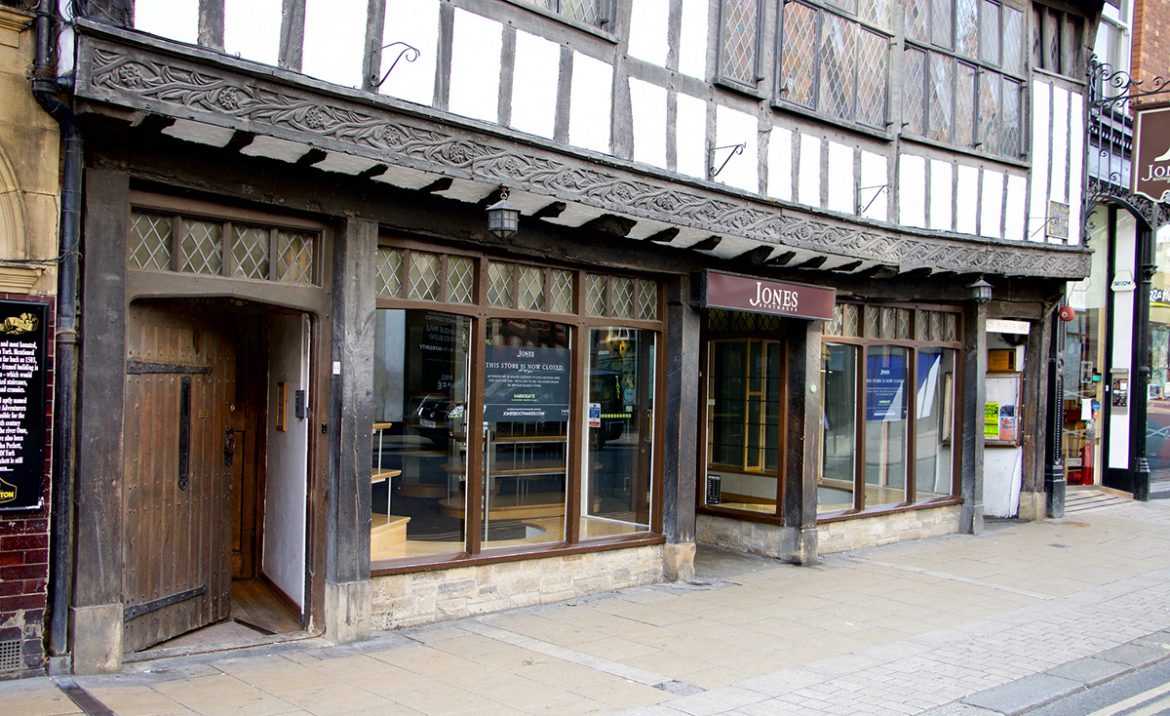For 20 years it traded out of one of York’s most historic buildings.
But now Jones Bootmaker has left its home in Herbert House – saying the York shop was no longer viable.
It is the latest high profile closure of a shop in York city centre, following the likes of Burgins Perfumery, Currys and York Hire Wear.
Can no longer stay open

Selling shoes, boots, bags and other leather goods, Jones Bootmaker first opened on Pavement in 1987.
But in March this year the firm, founded in London in 1857, was bought by private equity firm Endless.
And that has led to a rationalisation of the chain’s 72-strong estate of shops.
A spokeswoman for Jones Bootmaker told YorkMix: “The new management team is focused on stabilising the brand and delivering long term growth.
“This means reviewing every part of the business.” She added:
Whether this be because our product offer no longer supports the size of store (Jones Bootmaker no longer stocks children’s footwear); the lease agreement makes it uneconomic; or the amount of investment required to improve the store environment to a standard our customers deserve is not viable.
She wasn’t able to say which of these factors were key to the York shop’s closure.
End of an era

The four staff who worked in the Pavement store have been made redundant “although we did try to redeploy them,” the company spokeswoman said.
And she didn’t rule out the brand returning to York, saying “we are looking to relocate stores where possible”.
Its disappearance from the city centre has been met by sadness from shoppers. “Aww! I loved that shop. Bought boots almost each year from there,” said Jane Clappison on Facebook.
“And not just any shoe shop… Jones the Bootmaker! It’s the end of an era! Bets on what’s next – another food chain per chance?” commented Kirsteen Waller.
Royal history of Herbert House

Depending on which account you read, Sir Thomas Herbert was either born in the house or in adjacent Lady Peckitt’s Yard in 1606. It was his family home – great grandfather Christopher Herbert had lived here when he was Lord Mayor in 1573.
Sir Thomas was a great friend to Charles I, and his strong supporter during the Civil War. The banqueting room at Herbert House may have been the place where members of Charles’s retinue were entertained during the royal visit to the city in 1633, and the king himself on a second visit in 1639.
Even when the royalist cause was irrefutably lost, Sir Thomas remained steadfastly loyal. He accompanied Charles to his execution on January 30, 1649, at Whitehall in London.
So as not to shiver in the cold – and so appear fearful of his fate – the king asked for two shirts.
As Sir Thomas was responsible for Charles’ wardrobe, it is believed that he supplied them.
